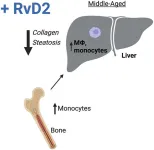SAN DIEGO ― The University of Texas MD Anderson Cancer Center’s Research Highlights showcases the latest breakthroughs in cancer care, research and prevention. These advances are made possible through seamless collaboration between MD Anderson’s world-leading clinicians and scientists, bringing discoveries from the lab to the clinic and back.
This special edition features oral presentations from the 2023 American Society of Hematology (ASH) Annual Meeting, describing the latest scientific and clinical breakthroughs for hematological cancers. In addition to these studies, forthcoming press releases will highlight groundbreaking research on ibrutinib plus venetoclax in relapsed/refractory mantle cell lymphoma (Abstract LBA-2), combination navitoclax plus ruxolitinib in untreated myelofibrosis (Abstract 620), menin inhibitors for patients with advanced leukemias with specific genetic alterations (Abstracts 57, 58), and a study of bezuclastinib in patients with nonadvanced systemic mastocytosis (Abstract 77).
More information on all ASH Annual Meeting content from MD Anderson can be found at MDAnderson.org/ASH.
Tuspetinib shows clinical responses alone and with venetoclax in patients with relapsed/refractory AML (Abstract 162)
Managing relapsed/refractory (R/R) acute myeloid leukemia (AML) can be challenging, and many patients develop resistance to venetoclax treatment. In a global Phase I/II study led by Naval Daver, M.D., researchers evaluated tuspetinib, a novel myeloid kinase inhibitor, alone and with venetoclax in patients with R/R AML. Of 100 patients treated with tuspetinib alone, the overall response rate was 14.3% for those previously treated with venetoclax, 23.1% for those with FLT3 mutations and prior FLT3 inhibitor treatment, and 66.7% for those with both NPM1 and FLT3 mutations. Additionally, researchers observed composite complete remissions in patients carrying TP53 mutations (40%) and RAS mutations (22.2%), which commonly are linked with resistance to venetoclax and standard therapies. The combination treatment arm has shown preliminary responses. These data suggest that tuspetinib had manageable side effects and demonstrated efficacy across diverse subsets of patients with AML. Daver will present the results Dec. 9.
More effective treatment options needed for patients with relapsed/refractory aggressive large B-cell lymphoma (Abstract 309)
Patients with aggressive relapsed/refractory large B-cell lymphoma after undergoing first-line treatment often have a poor prognosis. In a retrospective study, researchers led by Loretta Nastoupil, M.D., evaluated the effectiveness of chemo-immunotherapy and three novel combination therapies in second-line or later therapy for adult patients. Patients in the chemo-immunotherapy group had an overall response rate (ORR) of 33.8%, with 15.5% of patients achieving complete responses. The median progression-free survival and median overall survival for this group was 1.9 months and 9.1 months, respectively. Of the three novel combination therapies, the group receiving polatuzumab vedotin plus bendamustine and rituximab, or variations of it, had the highest ORR at 42.2%, with 24.1% of patients having a complete response. The poor outcomes across all groups, including with the novel therapies, highlight the need for more effective treatments. Nastoupil will present the findings Dec. 9.
Bispecific T cell antibody is safe and merits further study for patients with AML, MDS and CMML (Abstract 322)
Stem cells from patients with multiple leukemias have high CD123 expression compared to normal, highlighting its potential as a therapeutic target. Previous studies with vibecotamab – a CD3/CD123 bispecific antibody – demonstrated clinical activity in low-blast relapsed/refractory acute myeloid leukemia (AML). In a Phase II trial led by Nicholas Short, M.D., and presented by Daniel Nguyen, M.D., Ph.D., researchers evaluated vibecotamab in 11 patients with myelodysplastic syndrome (MDS) and chronic myelomonocytic leukemia (CMML) after failure of hypomethylating agents, as well as in 12 patients with measurable residual disease (MRD)-positive AML. Vibecotamab had a response rate of 64% in patients with MDS/CMML, while 25% of patients with MRD-positive AML achieved MRD negativity. Ten (44%) patients experienced grade 2 infusion reactions and one (4%) experienced a grade 3 infusion reaction. This study suggests vibecotamab is safe and merits further investigation as part of a combination therapy for patients with AML, MDS and CMML. Nguyen will present the findings Dec. 9.
ASXL1 mutations drive resistance to donor lymphocyte infusion in leukemia (Abstract 364)
Delivering T cells from a healthy donor – a process known as donor lymphocyte infusion (DLI) –can be curative for patients with leukemia who relapse after an allogenic stem cell transplant. However, it is unclear why only some patients benefit from this approach. To better understand pathways of DLI resistance, researchers led by Dustin McCurry, M.D., and Pavan Bachireddy, M.D., profiled bone marrow samples from patients with relapsed chronic myeloid leukemia taken before and after DLI. They discovered ASXL1 mutations were present in 78% of the patients who did not respond to DLI and 0% of the patients who did respond. The researchers found that mutant ASXL1 allowed cancer cells to escape immune surveillance by suppressing antigen presentation. Correcting these mutations restored the ability of cytotoxic T cells to eliminate the cancer cells. The findings suggest that strategies to restore antigen presentation in patients with ASXL1 mutations may improve treatment outcomes for these patients. McCurry, who was awarded the ASH Abstract Achievement Award, will present these findings Dec. 9.
Tasquinimod demonstrates efficacy in preclinical models of advanced myeloproliferative neoplasms (Abstract 741)
Myeloproliferative neoplasms (MPNs) are diseases of the blood and bone marrow that can lead to the development of secondary acute myeloid leukemia (sAML), which has a poor prognosis. In a preclinical study led by Warren Fiskus, Ph.D., and Kapil Bhalla, M.D., researchers investigated the efficacy of tasquinimod, a small molecule known to suppress tumor growth, using cellular models grafted with sAML human cells. They studied the presence of two proteins called alarmins, S100A8 (A8) and S100A9 (A9), associated with poor prognosis in AML. The researchers found A8 and A9 were highly expressed in other cells within the bone marrow, marking progression of primary myelofibrosis (PMF), a type of MPN. In the PMF model, tasquinimod bound A9, inhibiting its reaction with certain receptors. In both in vitro and in vivo studies, tasquinimod significantly reduced expression of A8 and A9 and significantly improved survival of models engrafted with human sAML cells. These findings show tasquinimod’s preclinical efficacy in advanced MPN models, meriting further evaluation as a treatment strategy. Fiskus will present the results Dec. 11.
AFM13 combined with NK cells shows strong tolerability and activity for patients with refractory CD30+ lymphomas (Abstract 774) Targeted natural killer (NK) cell therapy has been an active area of research for treating refractory Hodgkin lymphoma and other CD30+ lymphomas. A Phase I/II trial led by Yago Nieto, M.D., Ph.D., demonstrated promising results from cord blood-derived NK cells that were preactivated, expanded and then complexed with the innate cell engager AFM13 – a first-in-class CD30/CD16A bispecific antibody construct that induces selective killing of CD30+ tumor cells by engaging and activating NK cells. Among 42 patients treated with a median of seven lines of prior therapy, AFM13-complexed NK cells achieved an objective response rate of 92.8% and complete response rate of 66.7% (94.4% and 72.2%, respectively, in 36 patients receiving the recommended Phase II dose). At a median follow-up of 14 months, event-free survival and overall survival rates were 31% and 76%, respectively. Initial data from this trial were presented at the 2022 American Association for Cancer Research (AACR) Annual Meeting. Nieto will present final data from the trial Dec. 11.
Trial suggests chemotherapy could be avoided in patients with newly diagnosed diffuse large B-cell lymphoma (Abstract 856)
Adult patients with newly diagnosed diffuse large B-cell lymphoma (DLBCL) usually are treated with a chemotherapy regimen called CHOP, but this can cause significant side effects. In a Phase II trial led by Jason Westin, M.D., researchers evaluated whether the number of CHOP cycles could be reduced or omitted when patients responded favorably to a novel targeted therapy combination of lenalidomide, tafasitamab, rituximab and acalabrutinib (LTRA). Patients received four LTRA cycles and were evaluated for response. Treatment continued with six LTRA cycles plus just two cycles of CHOP for complete responders or six cycles for all others. After the first round of LTRA, the overall response rate (ORR) and complete response rate (CRR) was 100% and 64%, respectively. The additional two cycles of LTRA plus CHOP increased the CRR to 95%. At the end of all therapy, the CRR was 100%. This trial suggests that patients with newly diagnosed DLBCL could be treated with targeted therapy alone, although additional trials are needed to confirm these results. Westin will present results from the first cohort Dec. 11.
Adding acalabrutinib to lenalidomide and rituximab induces high response rates in patients with follicular lymphoma (Abstract 983)
Follicular lymphoma, a subtype of slow-growing non-Hodgkin B-cell lymphoma, may advance or recur following treatment with lenalidomide and rituximab. Previous studies show that heightened pro-tumoral macrophages, fueled by the BTK receptor, contribute to this progression. In a Phase II study led by Paolo Strati, M.D., researchers assessed the impact of incorporating acalabrutinib, a targeted BTK inhibitor, into the treatment regimen of lenalidomide and rituximab for individuals with newly diagnosed follicular lymphoma. The primary goal was to target macrophages, aiming to enhance responses to immunotherapy. Results showed a 100% overall response rate, a 92% complete response rate and a median time-to-complete response of three months. The two-year progression-free survival rate was 79.2%. These response rates suggest that incorporating acalabrutinib is both safe and effective at improving outcomes in this patient population. Strati will present the findings Dec. 11.
Read this press release in the MD Anderson Newsroom.
- 30 -
END



